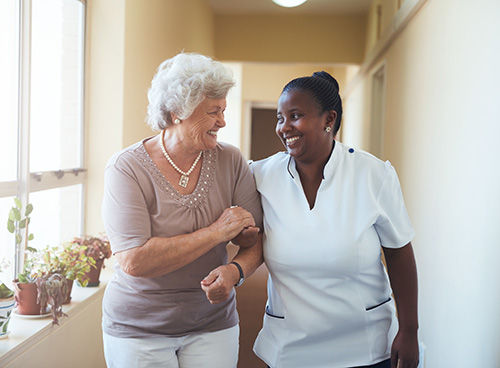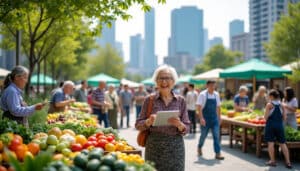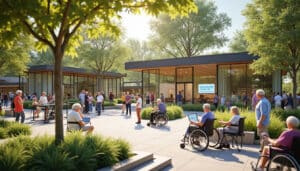|
IN BRIEF
|
As the population ages, the need for home care for the elderly is becoming more and more crucial. This essential manual aims to offer practical recommendations and tailored advice to ensure optimal care for seniors living at home. By emphasizing autonomy, well-being and the necessary support, this guide is intended to be a valuable resource for caregivers and the professionals concerned. By navigating through the challenges and available solutions, it helps create a safe and caring environment for seniors, while promoting their quality of life.
Essential Handbook for Elderly Home Care
Ensure the well-being of an elderly person at home requires special attention and appropriate knowledge. This manual aims to provide practical advice and tips for optimizing home care, both for caregivers and loved ones. Thanks to this guide, you will discover essential steps for staying at home while preserving the autonomy and comfort of elderly people.
Understanding the specific needs of older people
Before starting the support of an elderly person, it is crucial to understand their specific needs. Every person has their own challenges and requirements, whether related to health, mobility or daily activities. Assess the person’s functional abilities and identify areas where they may need help. This includes tasks like toilet, meal preparation or medication management.
Establish a secure environment
A suitable living environment is essential to prevent accidents and promote the independence of elderly people. Make sure living spaces are clear, floors are non-slip, and furniture is arranged to facilitate circulation. For more information on how create a suitable living environment, consult trusted resources and expert advice.
Organize daily care
Daily care includes a variety of tasks, from helping with toileting to managing medical treatments. A regular schedule can simplify care and reduce stress for caregivers. Integrate social and fun activities into the daily routine to maintain good mental health. A practical guide to the development of autonomy might offer you valuable ideas.
Use home help services
It is sometimes necessary to call on professionals to complete your support. THE home help services may include nurses, orderlies or housekeepers. To explore the different services available, it is essential to find out about financial aid and subsidies that can reduce the cost of care.
Encourage autonomy and commitment
Encouraging the autonomy of older people must be a priority. Help them participate in daily tasks to the best of their abilities. This will strengthen their sense of independence and their mental well-being. Offer activities that stimulate the mind and promote social interactions to avoid isolation. Tips for staying active and engaged are available in various practical guides on aging.
Assessment and adjustment of care
It is essential to regularly review the care plan put in place to ensure that it still meets the needs of the elderly person. Each change in health or situation must be taken into account to adjust the support. The importance of feedback and communication with the person being treated and professionals remains essential.
By following these tips, you will be better prepared to provide quality care and create a supportive environment for aging in place. For additional information, explore the resources of home help services, who can provide additional support and tailored advice.

Introduction to Elderly Home Care
THE home care for the elderly represent a crucial solution to guarantee their well-being and autonomy. The main objective of this manual is to provide practical recommendations for improving the quality of home care, while preserving the comfort and dignity of elderly individuals. Through adapted strategies, this guide proposes to support caregivers in their essential role, thus enabling them to better meet the specific needs of older people.
Needs assessment
Before setting up home care, it is essential to carry out a accurate assessment the needs of the elderly person. This step will identify areas where assistance is necessary, whether for everyday activities such as hygiene, mobility or even medical care. It is advisable to consider not only the physical aspects, but also the emotional and social needs, integrating the relational dimension essential for the well-being of the individual.
Care planning
Once the needs have been identified, it is appropriate to develop a care plan personalized. It is essential to involve the elderly person in this process in order to respect their autonomy and encourage their adherence to the care plan. This plan must include a list of tasks to be carried out daily as well as a schedule of interventions. In the event of complex care, coordination with health professionals such as nurses or doctors will be needed.
Choice of speakers
The choice of home workers is decisive in ensuring optimal quality of care. Caregivers should choose professionals trained and specialized in gerontological care. In addition, it is recommended to establish good communication between family caregivers and professionals, in order to create a beneficial synergy for the elderly person. A relationship of trust is essential for the individual to feel safe and respected.
Activities and stimulation
To guarantee the physical and mental well-being of elderly people at home, it is crucial to put in place stimulating activities. This can include adapted physical exercises, board games, or even outings to maintain social connections. These activities contribute not only to maintaining autonomy but also to preventing depression, by promoting interactions and exchanges.
Maintaining the appropriate environment
A secure environment and adapted to the needs of older people is essential. It is recommended to make adjustments in the home to promote mobility, such as installing grab bars or removing floor obstacles. Each room must be well lit, and the equipment necessary to assist with movement must be easily accessible. These arrangements are essential to guarantee safety and comfort on a daily basis.
The manual on home care for the elderly offers essential recommendations for quality support. By assessing needs, planning care, choosing the right caregivers, organizing activities, and maintaining a suitable environment, caregivers can actively contribute to improving the quality of life of older people. Home care, when done well, allows seniors to live in complete dignity while preserving their autonomy.
Elderly Home Care FAQs
What is home support for the elderly? Home support is a set of services and care intended for enable elderly people to live at home while benefiting from the necessary assistance to preserve their autonomy and well-being.
What types of in-home services are available for seniors? Home services may include assistance with toilet, there meal preparation, assistance for daily activities, as well as services of medical care provided by health professionals.
How to finance home care for the elderly? Financial aid, such asPersonalized Autonomy Allowance (APA), can help cover the costs of home care. There are also other grants Or social benefits available depending on individual situations.
Who can benefit from home help? Home help is mainly intended for elderly people in situations of dependence or having difficulty carrying out certain tasks of daily life due to their state of health.
How to choose a home help service? When choosing a home help service, it is important to take into account criteria such as reputation of the organization, there training of stakeholders, as well as the reviews of other users to guarantee quality assistance.
What are the advantages of home care for the elderly? Benefits include preservation of autonomy, THE family comfort, THE psychological well-being thanks to a familiar environment and the continuity of social interactions.
What challenges can home caregivers encounter? Caregivers may face challenges such as physical and emotional fatigue, THE stress related to time and task management, as well as concerns about health and the well-being of the person being helped.
How to ensure the safety of elderly people at home? To ensure safety, it is essential to modify the home environment to make it more accessible And secure, install alarm devices, and ensure that elderly people receive regular monitoring of their state of health.







